
Speakers
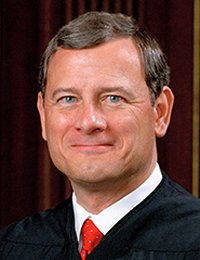
John G. Roberts, Jr., Chief Justice of the United States, received an A.B. from Harvard College in 1976 and a J.D. from Harvard Law School in 1979. He served as a law clerk for Judge Henry J. Friendly of the U.S. Court of Appeals for the Second Circuit from 1979 to 1980, and as a law clerk for then-Associate Justice William H. Rehnquist of the Supreme Court of the United States during the 1980 Term.
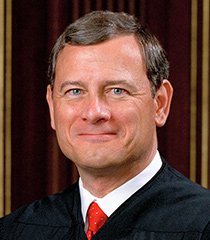
John G. Roberts, Jr., Chief Justice of the United States, was born in Buffalo, New York, January 27, 1955. He married Jane Sullivan in 1996 and they have two children - Josephine and Jack. He received an A.B. from Harvard College in 1976 and a J.D. from Harvard Law School in 1979. He served as a law clerk for Judge Henry J. Friendly of the United States Court of Appeals for the Second Circuit from 1979–1980, and as a law clerk for then-Associate Justice William H. Rehnquist of the Supreme Court of the United States during the 1980 Term. He served as a Special Assistant to the Attorney General of the United States from 1981–1982, Associate Counsel to President Ronald Reagan, White House Counsel’s Office from 1982–1986, and as Principal Deputy Solicitor General from 1989–1993. From 1986–1989 and 1993–2003, he practiced law in Washington, D.C. He served as a Judge on the Court of Appeals for the District of Columbia Circuit from 2003-2005. Nominated as Chief Justice of the United States by President George W. Bush, he assumed that office on September 29, 2005.
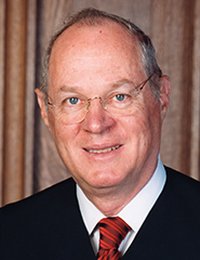
Anthony M. Kennedy (Retired), Associate Justice, was born in Sacramento, California, July 23, 1936. He married Mary Davis and has three children. He received his B.A. from Stanford University and the London School of Economics, and his LL.B. from Harvard Law School.
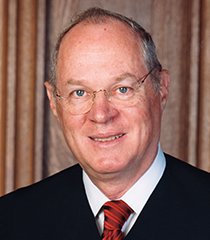
Anthony M. Kennedy (Retired), Associate Justice, was born in Sacramento, California, July 23, 1936. He married Mary Davis and has three children. He received his B.A. from Stanford University and the London School of Economics, and his LL.B. from Harvard Law School. He was in private practice in San Francisco, California from 1961–1963, as well as in Sacramento, California from 1963–1975. From 1965 to 1988, he was a Professor of Constitutional Law at the McGeorge School of Law, University of the Pacific. He has served in numerous positions during his career, including a member of the California Army National Guard in 1961, the board of the Federal Judicial Center from 1987–1988, and two committees of the Judicial Conference of the United States: the Advisory Panel on Financial Disclosure Reports and Judicial Activities, subsequently renamed the Advisory Committee on Codes of Conduct, from 1979–1987, and the Committee on Pacific Territories from 1979–1990, which he chaired from 1982–1990. He was appointed to the United States Court of Appeals for the Ninth Circuit in 1975. President Reagan nominated him as an Associate Justice of the Supreme Court, and he took his seat February 18, 1988. Justice Kennedy retired from the Supreme Court on July 31, 2018.
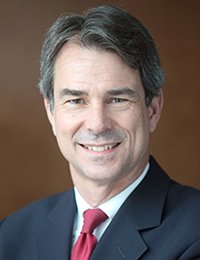
John Bellinger heads Arnold &Porter's Global Law and Public Policy practice. He joined the firm in 2009, after holding several senior Presidential appointments in the US government, including as The Legal Adviser to the Department of State from 2005 to 2009 under Secretary of State Condoleezza Rice and Senior Associate Counsel to the President and Legal Adviser to the National Security Council (NSC) at the White House from 2001-2005.
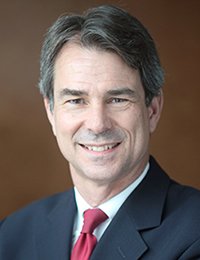
John Bellinger heads Arnold &Porter's Global Law and Public Policy practice. He joined the firm in 2009, after holding several senior Presidential appointments in the US government, including as The Legal Adviser to the Department of State from 2005 to 2009 under Secretary of State Condoleezza Rice and Senior Associate Counsel to the President and Legal Adviser to the National Security Council (NSC) at the White House from 2001-2005.
John represents individuals, corporations, and sovereign governments in litigation in US courts and before international institutions. He has extensive experience in US foreign relations litigation involving the Alien Tort Statute, the Foreign Sovereign Immunities Act, and the immunities of foreign governments and government officials. He also advises clients on other public international law matters, including international humanitarian law and human rights law and treaty law. He also counsels US and foreign clients on national security legal and policy issues, including US and multilateral financial sanctions and asset controls, the extraterritorial application of US criminal and civil laws, and transactions reviewed by the Committee on Foreign Investment in the United States (CFIUS).
Chambers reports that John has "second-to-none experience in public international law, international litigation and foreign sovereign immunity" and that his "experience at the highest levels of the Executive branch...gives him a distinct and important vantage point on legal issues."
As the State Department Legal Adviser-a Senate-confirmed position and the most senior international lawyer in the US Government-John directed more than 170 lawyers on domestic and international law matters affecting US foreign relations. Before joining the State Department, John managed Secretary Rice's confirmation process and co-directed her State Department transition team. In 2009, John received the Secretary of State's Distinguished Service Award.
John has argued cases before the International Court of Justice (Mexico v. United States – (Medellin)) and the Iran-United States Claims Tribunal in The Hague. He has appeared on numerous briefs in US federal courts, including the Supreme Court, in litigation involving international law issues.
As Legal Adviser to the NSC, John advised the President, Cabinet officials, the National Security Adviser, and NSC staff on a wide variety of national security and international law issues. He was present in the White House during the 9/11 attacks was one of the principal drafters of the legislation that created the Director of National Intelligence.
Prior to his service in the Bush Administration, John served as Counsel for National Security Matters in the Criminal Division at the US Department of Justice (1997-2001); Of Counsel to the Senate Select Committee on Intelligence (1996); General Counsel of the Commission on the Roles and Capabilities of the US Intelligence Community (1995-1996); and Special Assistant to Director of Central Intelligence William Webster (1988-1991).
John is an Adjunct Senior Fellow in International and National Security Law at the Council on Foreign Relations. He speaks regularly about international law matters on US and international television and radio, lectures at US and foreign universities and law schools and he has testified before Congress on numerous occasions on international law issues. He is the author of many law review articles and op-eds on international law, including op-eds in The Washington Post, The New York Times, and The Wall Street Journal. John is a senior contributor to the Lawfare blog.
John is a member of the Secretary of State's Advisory Committee on International Law; one of four US Members of the Permanent Court of Arbitration in The Hague; and a member of the US "National Group", which nominates judges to the International Court of Justice. He is also a member of the Council on Foreign Relations, the American Society of International Law, the Council of the American Law Institute, the board of the American Ditchley Foundation, and the advisory committee of Foreign Affairs magazine.
John is a graduate of Princeton University's Woodrow Wilson School of Public and International Affairs, and he holds an MA in Foreign Affairs from the University of Virginia and a JD from Harvard Law School, where he was an editor of the Harvard International Law Journal.

Cary Coglianese is the Edward B. Shils Professor of Law and Professor of Political Science at the University of Pennsylvania, where he currently serves as the director of the Penn Program on Regulation and has served as the law school’s Deputy Dean for Academic Affairs.

Cary Coglianese is the Edward B. Shils Professor of Law and Professor of Political Science at the University of Pennsylvania, where he currently serves as the director of the Penn Program on Regulation and has served as the law school’s Deputy Dean for Academic Affairs. He specializes in the study of regulation and regulatory processes, with an emphasis on the empirical evaluation of alternative regulatory strategies and the role of public participation, negotiation, and business-government relations in policy making.
His most recent books include: Achieving Regulatory Excellence; Does Regulation Kill Jobs?; Regulatory Breakdown: The Crisis of Confidence in U.S. Regulation; Import Safety: Regulatory Governance in the Global Economy; and Regulation and Regulatory Processes.
Prior to joining Penn Law, Coglianese spent a dozen years on the faculty at Harvard University’s John F. Kennedy School of Government. He also has taught as a visiting law professor at Stanford and Vanderbilt, founded the Law & Society Association’s international collaborative research network on regulatory governance, served as a founding editor of the peer-reviewed journal Regulation & Governance, and created and now advises the daily production of The Regulatory Review.
The chair of the Administrative Conference of the United States' committee on rulemaking, he has led a National Science Foundation initiative on e-rulemaking, served on the ABA’s task force on improving Regulations.Gov, and chaired a task force on transparency and public participation in the regulatory process that offered a blueprint to the Obama Administration on open government.
He is a co-chair of the American Bar Association’s administrative law section committee on e-government, past co-chair of the section's committee on rulemaking, and a past member of the section's Council. He currently serves as a member of a committee of the National Academies of Sciences, Engineering, and Medicine studying performance-based safety regulation and of an Aspen Institute dialogue on energy policy governance. He has served as a consultant to the Administrative Conference of the United States, Environment Canada, the Organization for Economic Cooperation and Development, the U.S. Department of Commerce, the U.S. Department of Transportation, and the U.S. Environmental Protection Agency.
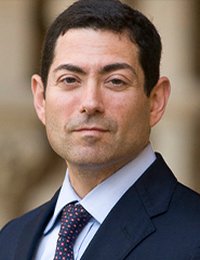
Justice Mariano-Florentino Cuéllar began serving on the Supreme Court of California in January 2015. His previous career was in public service, university administration, and legal academia, with a focus on administrative, criminal, and international law.
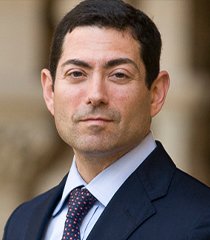
Justice Mariano-Florentino Cuéllar began serving on the Supreme Court of California in January 2015. He was nominated by Governor Jerry Brown, confirmed unanimously by the Commission on Judicial Appointments, and retained by the voters for a full term in November 2014. His previous career was in public service, university administration, and legal academia, with a focus on administrative, criminal, and international law.
A full-time member of the Stanford University faculty from 2001 to 2015, Justice Cuéllar was the Stanley Morrison Professor of Law and Professor (by courtesy) of Political Science. His books, articles, and chapters focus on administrative agencies, criminal justice, executive power, and legislation, among other subjects, and he is co-author of one of the nation’s leading administrative law casebooks. From 2004 to 2015, he held leadership positions at Stanford’s Freeman Spogli Institute for International Studies. As Institute Director, he supervised 12 research centers and programs, including the Stanford Center at Peking University. He led university-wide initiatives on global poverty alleviation and cybersecurity, and earlier, co-directed the Institute’s Center for International Security and Cooperation.
Justice Cuéllar also served in the federal executive branch. In 2009 and 2010, while on leave from Stanford, he worked at the White House as Special Assistant to the President for Justice and Regulatory Policy. He negotiated provisions in food safety, tobacco, and crack-powder cocaine sentencing reform legislation; convened the White House’s food safety working group and coordinated its response to the BP oil spill; set up the President’s Equal Pay Task Force; worked on the bipartisan repeal of the military’s Don’t Ask/Don’t Tell policy; and led efforts to support community-based crime prevention and immigrant integration. He was a presidential appointee, between 2010 and 2015, to the governing council of the U.S. Administrative Conference, an agency designed to improve fairness and efficiency in federal administrative procedures. He co-chaired the U.S. Department of Education’s National Equity and Excellence Commission from 2011 to 2013. Before that, in 2008 and early 2009, he co-chaired the presidential transition team on immigration, borders, and refugees.
Justice Cuéllar is on the boards of the William and Flora Hewlett Foundation, The American Law Institute, and the American Bar Foundation, and is a life member of the Council on Foreign Relations. Within the California Judiciary, he leads the Language Access Implementation Task Force. He was the Barbara Herrell Bond Distinguished Lecturer at Oxford University in 2012, and earlier was a member of the Silicon Valley Blue Ribbon Task Force on Aviation Security and Technology.
Justice Cuéllar serves as an Adviser for the ALI projects on Principles of the Law: Policing, and Principles of the Law, Student Sexual Misconduct: Procedural Frameworks for Colleges and Universities; and on the Members Consultative Groups for the Principles of Government Ethics.
A naturalized U.S. citizen born in northern Mexico, he graduated from Calexico High School in California’s Imperial Valley. He received a B.A. from Harvard, magna cum laude, a J.D. from Yale Law School, and a Ph.D. in Political Science from Stanford. After law school, he began his career at the U.S. Treasury Department’s Office of Enforcement working on disrupting financial and cross-border crime, and clerked for Chief Judge Mary M. Schroeder of the U.S. Court of Appeals for the Ninth Circuit. He is married to Judge Lucy H. Koh of the U.S. District Court for the Northern District of California. They have two children.
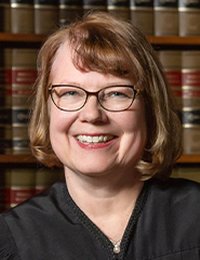
Allison H. Eid was sworn in as a judge on the Tenth Circuit United States Court of Appeals on November 3, 2017. Prior to joining the Tenth Circuit, Judge Eid served as a Justice of the Colorado Supreme Court, where she chaired the Water Court Committee and served as the state court representative to the Advisory Committee for the Federal Rules of Appellate Procedure.
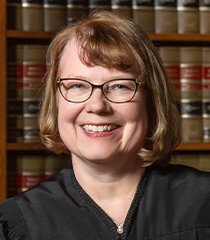
Allison H. Eid was sworn in as a judge on the Tenth Circuit United States Court of Appeals on November 3, 2017. Prior to joining the Tenth Circuit, Judge Eid served as a Justice of the Colorado Supreme Court, where she chaired the Water Court Committee and served as the state court representative to the Advisory Committee for the Federal Rules of Appellate Procedure. Before being named to the Colorado Supreme Court, Judge Eid served as the Solicitor General of the State of Colorado, representing Colorado officials and agencies in state and federal court. She was also a tenured Associate Professor at the University of Colorado Law School, teaching Constitutional Law, Legislation, and Torts, and writing and speaking on the topic of federalism.
Judge Eid practiced commercial and appellate litigation with the Denver office of Arnold & Porter. She clerked for the Honorable Clarence Thomas, Associate Justice of the United States Supreme Court, and for Judge Jerry E. Smith of the United States Court of Appeals for the Fifth Circuit in Houston, Texas. She graduated in 1991 with High Honors from The University of Chicago Law School, where she was Articles Editor of The University of Chicago Law Review and was elected to the Order of the Coif.
Judge Eid earned her bachelor’s degree in American Studies (With Distinction and Phi Beta Kappa) from Stanford University in 1987. Prior to law school, she served as a Special Assistant and Speechwriter to U.S. Secretary of Education William J. Bennett. She is a member of the American Law Institute, studied comparative law in London as a Temple Bar scholar, and served on the Permanent Committee for the Oliver Wendell Holmes Devise, established by Congress in 1955 to prepare the history of the U.S. Supreme Court.
Judge Eid grew up in Spokane, Washington. She and Troy, her husband of 29 years, have two children.
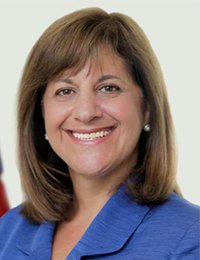
Meredith Fuchs is Senior Vice President, Chief Counsel, Regulatory Advisory at Capital One. In this capacity, She leads the company’s horizontal regulatory legal function supporting all lines of business and corporate staff functions. Ms. Fuchs joined Capital One from the Consumer Financial Protection Bureau (CFPB), where she was General Counsel and Acting Deputy Director after serving as Chief of Staff to CFPB Director Richard Cordray.
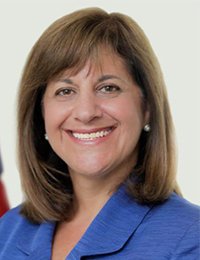
Meredith Fuchs is Senior Vice President, Chief Counsel, Regulatory Advisory at Capital One. In this capacity, She leads the company’s horizontal regulatory legal function supporting all lines of business and corporate staff functions. Ms. Fuchs joined Capital One from the Consumer Financial Protection Bureau (CFPB), where she was General Counsel and Acting Deputy Director after serving as Chief of Staff to CFPB Director Richard Cordray.
Prior to the CFPB, she held roles as the Chief Investigative Counsel of the United States House of Representatives Committee on Energy and Commerce, as Vice President and General Counsel at The National Security Archive at George Washington University, and as a litigation partner at Wiley, Rein & Fielding in Washington, D.C.
She has served as an officer on the D.C. Bar Board of Governors, and is the recipient of the American Library Association’s James Madison Award, and was named to the National Law Journal’s list of 75 Outstanding Women Lawyers. Ms. Fuchs served as a law clerk for Judge Patricia M. Wald on the D.C. Circuit Court of Appeals and Judge Paul L. Friedman on the United States District Court for the District of Columbia. She is a graduate of the New York University School of Law and the London School of Economics and Political Science.
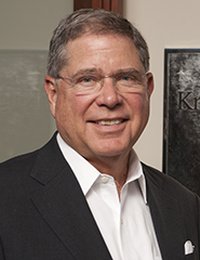
Alberto Ibargüen is president and CEO of the John S. and James L. Knight Foundation. He is the former publisher of The Miami Herald and El Nuevo Herald. During his tenure, The Miami Herald won three Pulitzer Prizes and El Nuevo Herald won Spain’s Ortega y Gasset Prize for excellence in Spanish language journalism.
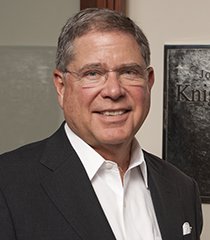
Alberto Ibargüen is president and CEO of the John S. and James L. Knight Foundation. The foundation promotes informed and engaged communities. Its work focuses on journalism and media innovation, arts and the use of technology to promote transformational community engagement.
He is the former publisher of The Miami Herald and El Nuevo Herald. During his tenure, The Miami Herald won three Pulitzer Prizes and El Nuevo Herald won Spain’s Ortega y Gasset Prize for excellence in Spanish language journalism.
He graduated from Wesleyan University and the University of Pennsylvania Law School. He served in the Peace Corps in Venezuela and Colombia, practiced law in Hartford, Connecticut and joined the Hartford Courant, then Newsday in New York, before moving to Miami.
Over time, Alberto has chaired the boards of PBS, the Newseum and the World Wide Web Foundation, founded by Sir Tim Berners-Lee. He is a member of MIT’s Visiting Committee for the Media Lab and is a Fellow of the American Academy of Arts & Sciences. For his work to protect journalists in Latin America, he received a Maria Moors Cabot citation from Columbia University. He holds honorary degrees from several schools, including Wesleyan and George Washington universities.
He is currently a member of the board of American Airlines and previously served on the boards of PepsiCo, AOL and Norwegian Cruise Lines.
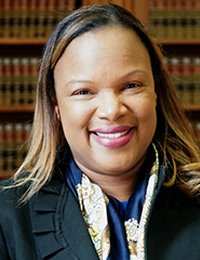
Professor Johnson is the McGlinchey Stafford Professor of Law at Tulane University, Associate Dean of Faculty Research and an affiliate of the Murphy Institute for Political Economy. Professor Johnson is nationally recognized as a leading scholar of financial risk management and corporate law.
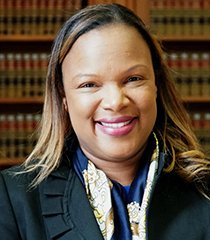
Professor Johnson is the McGlinchey Stafford Professor of Law at Tulane University, Associate Dean of Faculty Research and an affiliate of the Murphy Institute for Political Economy. Professor Johnson is nationally recognized as a leading scholar of financial risk management and corporate law. She has presented her research on systemic risk, risk management, cyber risk regulation, emerging technologies in finance and macroprudential financial markets regulation throughout the United States and abroad. Professor Johnson is an elected member of the American Law Institute and an American Bar Association Fellow. She has been a Visiting Professor at the University of California-Irvine, University of Florida, University of Illinois, and Washington & Lee University Law Schools.
Professor Johnson served as Assistant General Counsel and Vice President at JP Morgan and an associate at Simpson, Thatcher and Bartlett LLP’s New York and London offices where she represented issuers and underwriters in domestic and international debt and equity offerings, lenders and borrowers in banking and credit matters, and private equity firms and publicly-traded companies in mergers and acquisitions. Professor Johnson clerked for the Honorable Joseph A. Greenaway, Jr., then of the United States District Court for the District of New Jersey, elevated to the United States Court of Appeals for the Third Circuit. Before law school she served as an analyst at Goldman, Sachs & Co. Professor Johnson is a graduate of Georgetown University’s School of Foreign Service, cum laude, with a B.S. in Comparative Political Economy and the University of Michigan Law School, where she received a J.D. and served as a Notes Editor on the Michigan Law Review.
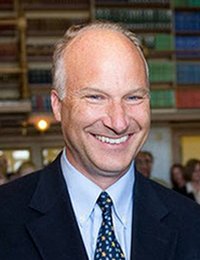
Derek P. Langhauser is currently Chief Legal Counsel for Maine Governor Janet T. Mills. He has also served as Special Counsel to the Maine Maritime Academy since 2013. He served as President (2015-19) and General Counsel (1994-2015) of the Maine Community College System, and Special Counsel to U.S. Senator Olympia J. Snowe (1998-2012).
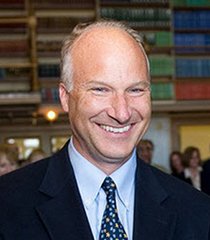
Derek P. Langhauser is currently Chief Legal Counsel for Maine Governor Janet T. Mills. He has also served as Special Counsel to the Maine Maritime Academy since 2013. He served as President (2015-19) and General Counsel (1994-2015) of the Maine Community College System, and Special Counsel to U.S. Senator Olympia J. Snowe (1998-2012).
Previously, he served as Chief Legal Counsel to Maine Governor John R. McKernan, Jr. and law clerk to Maine Supreme Judicial Court Senior Associate Justice David A. Nichols and Associate Justice, now U.S. District Judge, D. Brock Hornby.
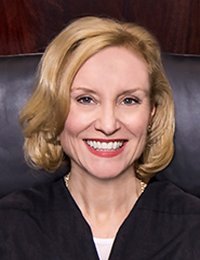
The Honorable Joan L. Larsen is a judge of the United States Court of Appeals for the Sixth Circuit. Before her appointment to the federal bench, Judge Larsen served two terms as a Justice of the Michigan Supreme Court, where she was the court’s liaison to Michigan’s drug, sobriety, mental health and veteran’s courts.
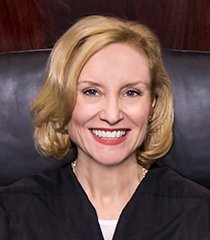
The Honorable Joan L. Larsen is a judge of the United States Court of Appeals for the Sixth Circuit. She was nominated by the President on May 8, 2017 and confirmed by the Senate on November 1, 2017. Before her appointment to the federal bench, Judge Larsen served two terms as a Justice of the Michigan Supreme Court, where she was the court’s liaison to Michigan’s drug, sobriety, mental health and veteran’s courts.
Before becoming a judge, Judge Larsen was a faculty member at the University of Michigan Law School, where she was also Special Counsel to the Dean and received the L. Hart Wright Award for Excellence in Teaching. Judge Larsen's research and teaching interests included constitutional law, criminal procedure, statutory interpretation, and presidential power. Judge Larsen continues to assist the law school as the adviser to the Henry M. Campbell Moot Court Competition.
Judge Larsen began her legal career as a law clerk to the Hon. David B. Sentelle of the United States Court of Appeals for the D.C. Circuit and to Justice Antonin Scalia of the Supreme Court of the United States. Following her clerkships, she joined the law firm of Sidley Austin, where she was a member of the Constitutional, Criminal, and Civil Litigation Section. She later served as Deputy Assistant Attorney General in the United States Department of Justice, Office of Legal Counsel.
Judge Larsen graduated first in her class from Northwestern University School of Law, where she served as articles editor of the Northwestern University Law Review and earned the John Paul Stevens Award for Academic Excellence. She received her B.A., with highest honors, from the University of Northern Iowa.
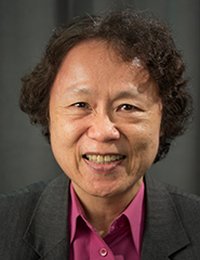
Carol F. Lee is Special Counsel at Taconic Capital Advisors, an SEC-registered investment advisor based in New York City that manages private investment funds with total assets under management of approximately $6.7 billion.
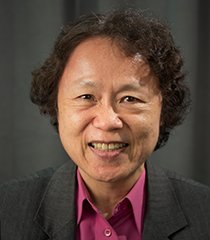
Carol F. Lee is Special Counsel at Taconic Capital Advisors, an SEC-registered investment advisor based in New York City that manages private investment funds with total assets under management of approximately $6.7 billion.
Ms. Lee was elected to the ALI in February 2008 and was elected to the Council in May 2012. She is a member of the Projects Committee and previously served on the Investment Committee. In addition, she devotes considerable time to reading Council drafts closely and providing comments to the Reporters. She is an Adviser for the Restatement of the Law Third, Torts: Intentional Torts to Persons and a member of the Members Consultative Group for the Restatement of the Law, Consumer Contracts.
From 1983 to 1993, she was an associate and then a partner at Wilmer, Cutler and Pickering in Washington, D.C. Her practice included international corporate transactions and joint ventures, Supreme Court and appellate litigation, international aviation regulation, and campaign finance law. She taught a course on the European Community and federalism in the U.S. as a lecturer at Harvard Law School and Yale Law School from 1989 through 1992.
From 1993 to 1995, she was General Counsel of the Export-Import Bank of the United States. From 1995 to 2002, she was Vice President and General Counsel of the International Finance Corporation, the private sector investment arm of the World Bank Group. From 2007 through 2012, she was General Counsel of Taconic Capital Advisors.
She clerked for Judge J. Skelly Wright of the U.S. Court of Appeals for the District of Columbia Circuit, and for Justice John Paul Stevens of the United States Supreme Court. She has published several scholarly articles on legal and historical topics. Her husband, Professor David J. Seipp of Boston University School of Law, is a Life Member of the ALI.
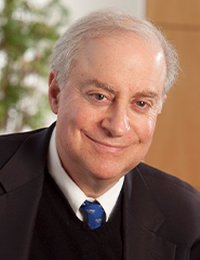
David F. Levi is the Levi Family Professor of Law and Judicial Studies and Director of the Bolch Judicial Institute. Levi was previously the James B. Duke and Benjamin N. Duke Dean of the School of Law. The 14th dean of Duke Law School, he served from 2007 to 2018. He became president of The American Law Institute in 2017.
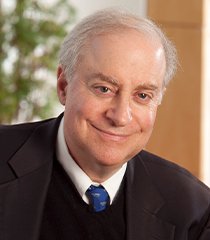
David F. Levi is the Levi Family Professor of Law and Judicial Studies and Director of the Bolch Judicial Institute. Levi was previously the James B. Duke and Benjamin N. Duke Dean of the School of Law. The 14th dean of Duke Law School, he served from 2007 to 2018. Prior to his appointment, he was the Chief United States District Judge for the Eastern District of California with chambers in Sacramento. He was appointed United States Attorney by President Ronald Reagan in 1986 and a United States district judge by President George H. W. Bush in 1990.
A native of Chicago, Levi earned his A.B. in history and literature, magna cum laude, from Harvard College. He entered Harvard's graduate program in history, specializing in English legal history and serving as a teaching fellow in English history and literature. He graduated Order of the Coif in 1980 from Stanford Law School, where he was also president of the Stanford Law Review. Following graduation, he was a law clerk to Judge Ben C. Duniway of the U.S. Court of Appeals for the Ninth Circuit, and then to Justice Lewis F. Powell, Jr., of the U.S. Supreme Court.
Levi has served as chair of two Judicial Conference committees by appointment of the Chief Justice. He was chair of the Civil Rules Advisory Committee (2000-2003) and chair of the Standing Committee on the Rules of Practice and Procedure (2003-2007); he was reappointed to serve as a member of that committee (2009-2015). He was the first president and a founder of the Milton L. Schwartz American Inn of Court, now the Schwartz-Levi American Inn of Court, at the King Hall School of Law, University of California at Davis. He was chair of the Ninth Circuit Task Force on Race, Religious and Ethnic Fairness and was an author of the report of the Task Force. He was president of the Ninth Circuit District Judges Association (2003-2005).
In 2007, Levi was elected a fellow of the American Academy of Arts and Sciences. From 2010 to 2013, he served on the board of directors of Equal Justice Works. In 2014, he was appointed chair of the American Bar Association's Standing Committee on the American Judicial System, and in 2015, he was named co-chair of the North Carolina Commission on the Administration of Law and Justice. He became president of The American Law Institute (ALI) in 2017 after serving as a member of the ALI Council and an Adviser to the ALI's Federal Judicial Code Revision and Aggregate Litigation projects.
Levi is the co-author of Federal Trial Objections (James Publishing 2002). At Duke Law, he has taught courses on judicial behavior, ethics, and legal history.
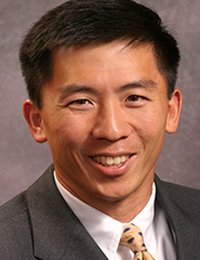
Goodwin Liu is an associate justice of the California Supreme Court. He was confirmed to office by a unanimous vote of the California Commission on Judicial Appointments on August 31, 2011, following his appointment by Governor Edmund G. Brown, Jr.
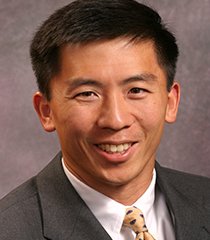
Goodwin Liu is an associate justice of the California Supreme Court. He was confirmed to office by a unanimous vote of the California Commission on Judicial Appointments on August 31, 2011, following his appointment by Governor Edmund G. Brown, Jr.
He was previously a professor of law and associate dean at the University of California, Berkeley School of Law, before joining the court in 2011. Before that, he was a litigator in the Washington, DC, office of O’Melveny & Myers and also served in the U.S. Department of Education and the Corporation for National Service.
Justice Liu is a prolific and influential scholar on constitutional law and education policy. His 2006 article, “Education, Equality, and National Citizenship,” won the Steven S. Goldberg Award for Distinguished Scholarship in Education Law, conferred by the Education Law Association. Justice Liu is also a popular and acclaimed teacher. In 2009, he received UC Berkeley’s Distinguished Teaching Award, the university’s most prestigious honor for individual excellence in teaching. The Boalt Hall Class of 2009 selected him as the faculty commencement speaker.
Justice Liu serves on the California Access to Justice Commission, the Council of the American Law Institute, the Committee on Science, Technology, and Law of the National Academy of Sciences, and the James Irvine Foundation. He has previously served on the Board of Trustees of Stanford University and the Board of Directors of the Alliance for Excellent Education, the American Constitution Society, the National Women’s Law Center, and the Public Welfare Foundation.
Justice Liu holds a B.S. from Stanford University, an M.Phil. from Oxford University, which he attended as a Rhodes Scholar, and a J.D. from Yale Law School. Immediately after law school, he clerked for Judge David S. Tatel on the U.S. Court of Appeals for the District of Columbia Circuit and later clerked on the U.S. Supreme Court for Justice Ruth Bader Ginsburg.
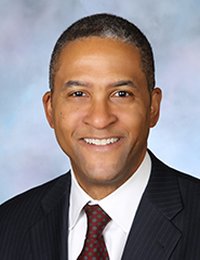
Raymond Lohier is a judge on the United States Court of Appeals for the Second Circuit. He was nominated by President Barack Obama in March 2010 and unanimously confirmed by the United States Senate in December 2010.
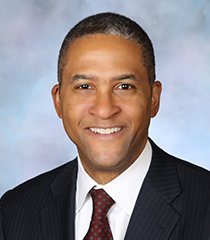
Raymond Lohier is a judge on the United States Court of Appeals for the Second Circuit. He was nominated by President Barack Obama in March 2010 and unanimously confirmed by the United States Senate in December 2010.
For the decade prior to his appointment, Judge Lohier was an Assistant United States Attorney in the Southern District of New York, where he served as Senior Counsel to the United States Attorney, Deputy Chief and Chief of the Securities and Commodities Fraud Task Force, and Deputy Chief and Chief of the Narcotics Unit. As the Deputy Chief and Chief of the Securities and Commodities Fraud Task Force, Judge Lohier was responsible for overseeing the Bernard Madoff prosecutions, the investigation and prosecution of Marc Dreier, the Galleon and other hedge fund-related insider trading cases, as well as several other high-profile fraud cases. Prior to his service as an Assistant United States Attorney, from 1997 to 2000, Judge Lohier served as a Senior Trial Attorney with the Civil Rights Division of the United States Department of Justice, where he spearheaded employment discrimination-related litigation and worked on other civil rights matters of importance to the federal government.
Judge Lohier has been a member of ALI since 2013, serving on the Council since 2014. He was an Adviser for Restatement of the Law, Employment Law, and serves as an Adviser for Principles of the Law, Compliance, Risk Management, and Enforcement and as chairperson of the ALI’s Awards committee.
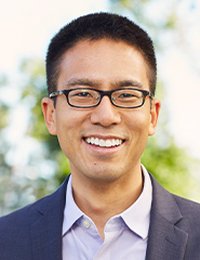
Tom Lue is General Counsel at DeepMind, a leading artificial intelligence company whose mission is to “solve intelligence, use it to make the world a better place.” DeepMind, which was founded in 2010 and acquired by Google in 2014, is headquartered in London and has offices in Paris, Montreal, Edmonton, and Mountain View, California.
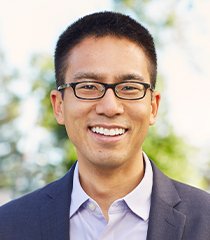
Tom Lue is General Counsel at DeepMind, a leading artificial intelligence company whose mission is to “solve intelligence, use it to make the world a better place.” DeepMind, which was founded in 2010 and acquired by Google in 2014, is headquartered in London and has offices in Paris, Montreal, Edmonton, and Mountain View, California.
Before joining DeepMind, Tom was Deputy General Counsel at Waymo, where he was responsible for regulatory, product, litigation, and employment matters for Google’s self-driving car company, and Senior Counsel at Google where he advised various emerging technology teams.
Tom has also served in the federal government in various roles, including as Acting and Deputy General Counsel at the White House Office of Management and Budget (OMB), and Attorney-Advisor at the Office of Legal Counsel (OLC) of the U.S. Department of Justice. He was a law clerk for Judge Gerard E. Lynch on the Southern District of New York, Judge Reena Raggi on the U.S. Court of Appeals for the Second Circuit, and Justice Sonia Sotomayor on the U.S. Supreme Court. Prior to his government service, Tom worked at the law firm of Wachtell, Lipton, Rosen & Katz.
Tom has taught courses as a Lecturer in Law at Stanford and Columbia, and serves on the Board of Directors of Hamilton Families and iCivics. He is a graduate of Harvard College and Harvard Law School.
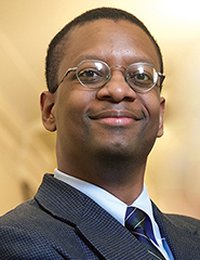
Troy A. McKenzie is Professor of Law at New York University School of Law. His research and teaching interests include bankruptcy, civil procedure, complex litigation, and the federal courts. He studies litigation and the institutions that shape it—particularly complex litigation that is resolved through the class action, bankruptcy, and other forms of aggregation.
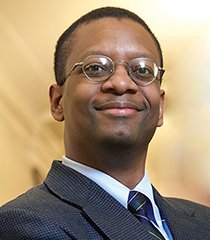
Troy A. McKenzie is Professor of Law at New York University School of Law. His research and teaching interests include bankruptcy, civil procedure, complex litigation, and the federal courts. He studies litigation and the institutions that shape it—particularly complex litigation that is resolved through the class action, bankruptcy, and other forms of aggregation. He serves as a faculty co-director of two NYU centers: the Institute of Judicial Administration and the Center on Civil Justice. He is also a member of the National Bankruptcy Conference and the Council of The American Law Institute.
From 2011-2015, McKenzie served, by appointment of the Chief Justice, as a reporter to the Advisory Committee on Bankruptcy Rules of the Judicial Conference of the United States. From 2015-2017, he took a leave of absence from NYU to serve in the U.S. Department of Justice as a Deputy Assistant Attorney General for the Office of Legal Counsel.
McKenzie earned a bachelor’s degree in chemical engineering in 1997 from Princeton University and a law degree in 2000 from NYU, where he was an executive editor of the Law Review and a member of the Order of the Coif. After law school, he served as a law clerk to Judge Pierre N. Leval of the U.S. Court of Appeals for the Second Circuit and Justice John Paul Stevens of the Supreme Court of the United States. Before joining the NYU faculty in 2007, McKenzie was a litigation associate at Debevoise & Plimpton in New York.
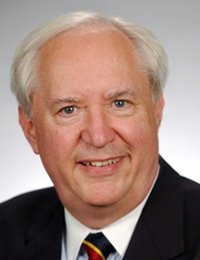
Thomas D. Morgan teaches antitrust law and professional responsibility at The George Washington University Law School. An author of articles and widely-used casebooks in both subjects, he also writes about administrative law, economic regulation, and legal education.
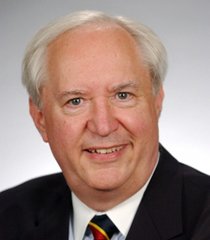
Thomas D. Morgan teaches antitrust law and professional responsibility at The George Washington University Law School. An author of articles and widely-used casebooks in both subjects, he also writes about administrative law, economic regulation, and legal education. A lecturer and consultant to law firms on questions of professional ethics and lawyer malpractice, Professor Morgan was selected by the American Law Institute as one of three professors to prepare its new Restatement of the Law Governing Lawyers, and by the American Bar Association as one of three professors to draft revisions to its Model Rules of Professional Conduct. Professor Morgan has been dean of the Emory University School of Law, a professor at the University of Illinois and Brigham Young University, a visiting professor at Cornell, and a visiting scholar at Oxford. In 1990, he served as president of the Association of American Law Schools.
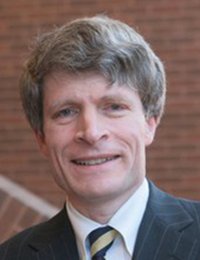
Richard W. Painter is the S. Walter Richey Professor of Corporate Law at University of Minnesota Law School. From February 2005 to July 2007, he was associate counsel to the president in the White House Counsel’s office, serving as the chief ethics lawyer for the president, White House employees, and senior nominees to Senate-confirmed positions in the executive branch.
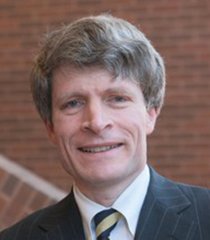
Richard W. Painter received his B.A., summa cum laude, in history from Harvard University and his J.D. from Yale University, where he was an editor of the Yale Journal on Regulation. Following law school, he clerked for Judge John T. Noonan Jr. of the United States Court of Appeals for the 9th Circuit and later practiced at Sullivan & Cromwell in New York City and Finn Dixon & Herling in Stamford, Conn.
He has served as a tenured member of the law faculty at the University of Oregon School of Law and the University of Illinois College of Law, where he was the Guy Raymond and Mildred Van Voorhis Jones Professor of Law from 2002 to 2005. He has been the S. Walter Richey Professor of Corporate Law at the University of Minnesota Law School since 2007.
From February 2005 to July 2007, he was associate counsel to the president in the White House Counsel’s office, serving as the chief ethics lawyer for the president, White House employees, and senior nominees to Senate-confirmed positions in the executive branch. He is a member of The American Law Institute and is a Reporter for Principles of the Law, Government Ethics. He has also been active in the Professional Responsibility Section of the American Bar Association. He is a board member and vice chair of Citizens for Responsibility and Ethics in Washington as well as a founding board member of Take Back our Republic, a campaign finance reform organization.
Painter has also been active in law reform efforts aimed at deterring securities fraud and improving ethics of corporate managers and lawyers. A key provision of the Sarbanes-Oxley Act of 2002, requiring the SEC to issue rules of professional responsibility for securities lawyers, was based on earlier proposals Painter made in law review articles and to the ABA and the SEC. He has given dozens of lectures on the Sarbanes-Oxley Act to law schools, bar associations, and learned societies, such as the American Academy of Arts and Sciences. Professor Painter has on six occasions provided invited testimony before committees of the U.S. House of Representatives or the U.S. Senate on government ethics, securities litigation, and/or the role of attorneys in corporate governance.
Painter’s book Getting the Government America Deserves: How Ethics Reform Can Make a Difference was published by Oxford University Press in January 2009. His coauthored book (with Professor Claire Hill) Better Bankers, Better Banks: Promoting Good Business Through Contractual Commitment was published by the University of Chicago Press in 2015. From 2014-15 he was a residential fellow at Harvard University’s Safra Center for Ethics, which funded his work on a third book, Taxation only with Representation: The Conservative Conscience and Campaign Finance Reform (Take Back our Republic, 2016).
He has written op-eds on government ethics for various publications, including the New York Times, Washington Post and Los Angeles Times, and he has been interviewed several times on government ethics and corporate ethics by national news organizations, including appearances on The Last Word with Lawrence O’Donnell (MSNBC), Anderson Cooper 360 (CNN), CNN News, Fox News, National Public Radio’s All Things Considered, and Minnesota Public Radio News. Painter has also given expert testimony in cases involving securities transactions and the professional responsibility of lawyers. He testified as a defense witness in SEC v. The Reserve Money Market Fund (SDNY, November 2012), a jury trial of an SEC enforcement action against the founders of the world’s oldest money market fund that ended with a defense verdict on all of the fraud counts.
Painter is the coauthor of two casebooks: Securities Litigation and Enforcement (with Margaret Sachs and Donna Nagy; West Academic Publishing, 2003; second edition, 2007; third edition, 2011) and Professional and Personal Responsibilities of the Lawyer (with Judge John T. Noonan Jr.; Foundation Press, 1997; second edition, 2001; third edition, 2011). He has written dozens of articles, book reviews, and essays.
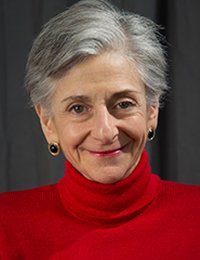
Lee H. Rosenthal was appointed to the United States District Court for the Southern District of Texas in 1992. She has been Chief Judge since 2016. Prior to her appointment, she was a partner at Baker Botts in Houston, Texas, where she tried civil cases and handled appeals in the state and federal courts.
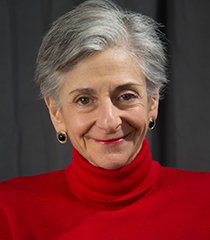
Lee H. Rosenthal was appointed to the United States District Court for the Southern District of Texas in 1992. She has been Chief Judge since 2016. Prior to her appointment, she was a partner at Baker Botts in Houston, Texas, where she tried civil cases and handled appeals in the state and federal courts. She received her undergraduate and law degrees from the University of Chicago and served as law clerk to Chief Judge John R. Brown, United States Court of Appeals for the Fifth Circuit.
In 1996, Judge Rosenthal was appointed to serve as a member of the Judicial Conference Advisory Committee on Civil Rules and appointed chair in 2003. From 2007 to 2011, she served as the chair of the Judicial Conference Committee on the Rules of Practice and Procedure. She served as president of the District Judges’ Association of the Fifth Circuit. She is the 2012 recipient of the Lewis F. Powell Jr. Award for Professionalism and Ethics given by the American Inns of Court and is a 3-time recipient of the Trial Judge of the Year Award from the Texas Association of Civil Trial and Appellate Specialists. In 2014, she was elected to the American Academy of Arts and Sciences.
Judge Rosenthal is the 2nd Vice President of The American Law Institute, where she also serves as an Adviser on the project to revise the Model Penal Code sections on sexual assault and on the Conflict of Laws Restatement. In 2007, she was elected to the ALI Council and from 2011 to 2016 was Chair of the Program Committee.
Judge Rosenthal teaches, writes, and speaks frequently, primarily in the areas of federal courts, complex litigation, discovery, and case management.
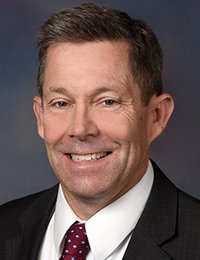
Jeffrey S. Sutton has served on the United States Court of Appeals for the Sixth Circuit since 2003. He was previously a partner with the law firm of Jones Day and served as State Solicitor of the State of Ohio. In his career as an advocate, he argued twelve cases in the United States Supreme Court and numerous cases in the state supreme courts and federal courts of appeal.
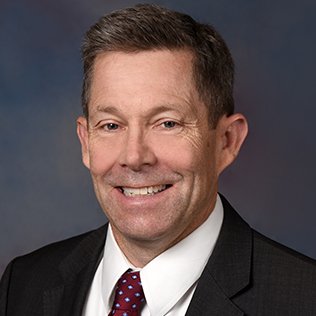
Jeffrey S. Sutton has served on the United States Court of Appeals for the Sixth Circuit since 2003. He was previously a partner with the law firm of Jones Day and served as State Solicitor of the State of Ohio. In his career as an advocate, he argued twelve cases in the United States Supreme Court and numerous cases in the state supreme courts and federal courts of appeal.
Judge Sutton served as a law clerk to Justices Lewis F. Powell, Jr., and Antonin Scalia of the United States Supreme Court, as well as Judge Thomas J. Meskill of the United States Court of Appeals for the Second Circuit.
Judge Sutton served as Chair of the Federal Judicial Conference Committee on Rules of Practice and Procedure from 2012 to 2016. He was appointed to that committee by Chief Justice Roberts. He has also served on the Advisory Committee on Appellate Rules. He was appointed to that committee by Chief Justice Rehnquist in 2005, and Chief Justice Roberts appointed him to be Chair of that committee in 2009. He is a Council member of The American Law Institute.
Since 1993, Judge Sutton has been an adjunct professor at The Ohio State University College of Law, where he teaches seminars on State Constitutional Law, the United States Supreme Court, and Appellate Advocacy. Judge Sutton has authored books and articles on a wide variety of topics, including many on state constitutional law and federalism. His publications include State Constitutional Law: The Modern Experience, as well as The Law of Judicial Precedent.
Judge Sutton received his B.A. from Williams College and his J.D. from The Ohio State University College of Law.
